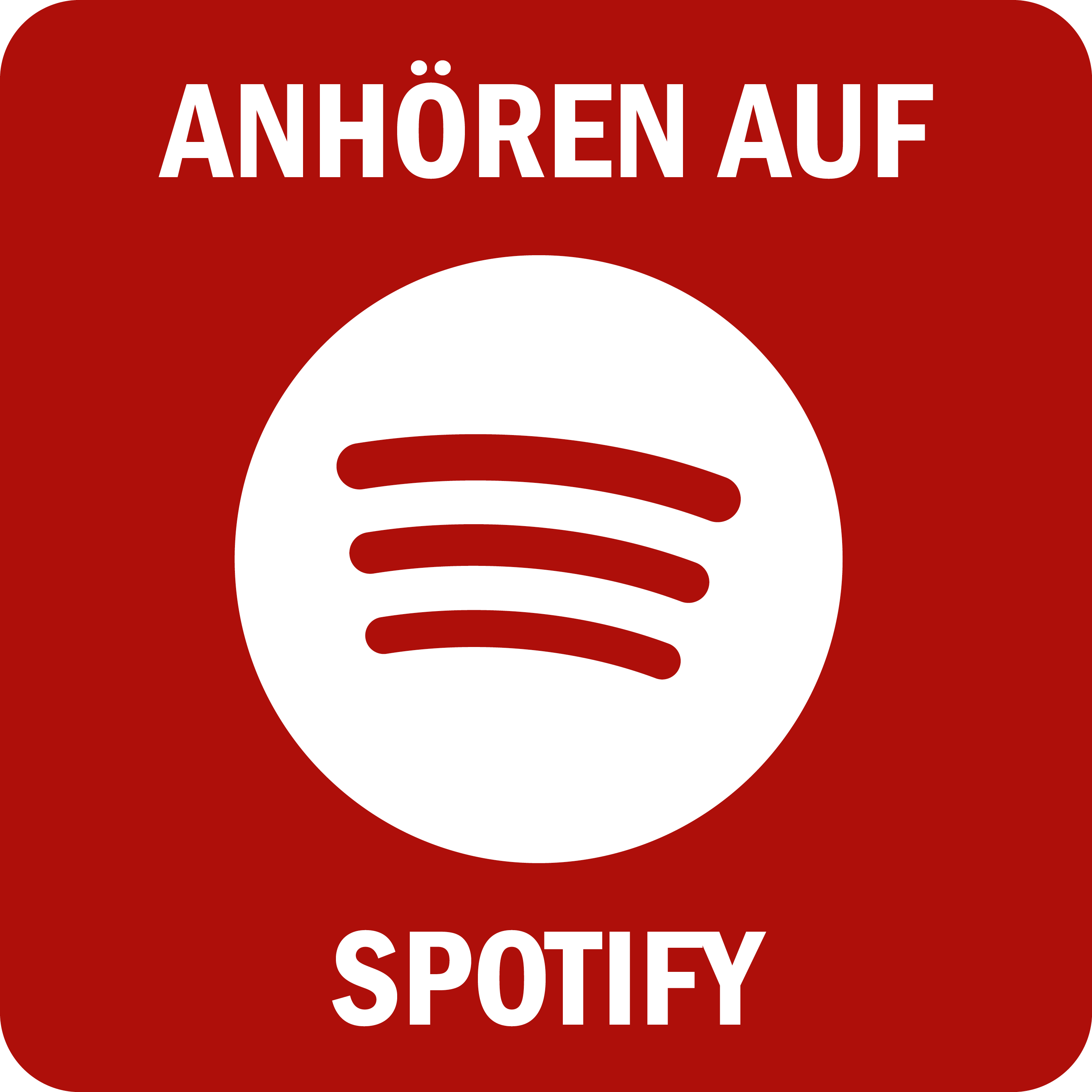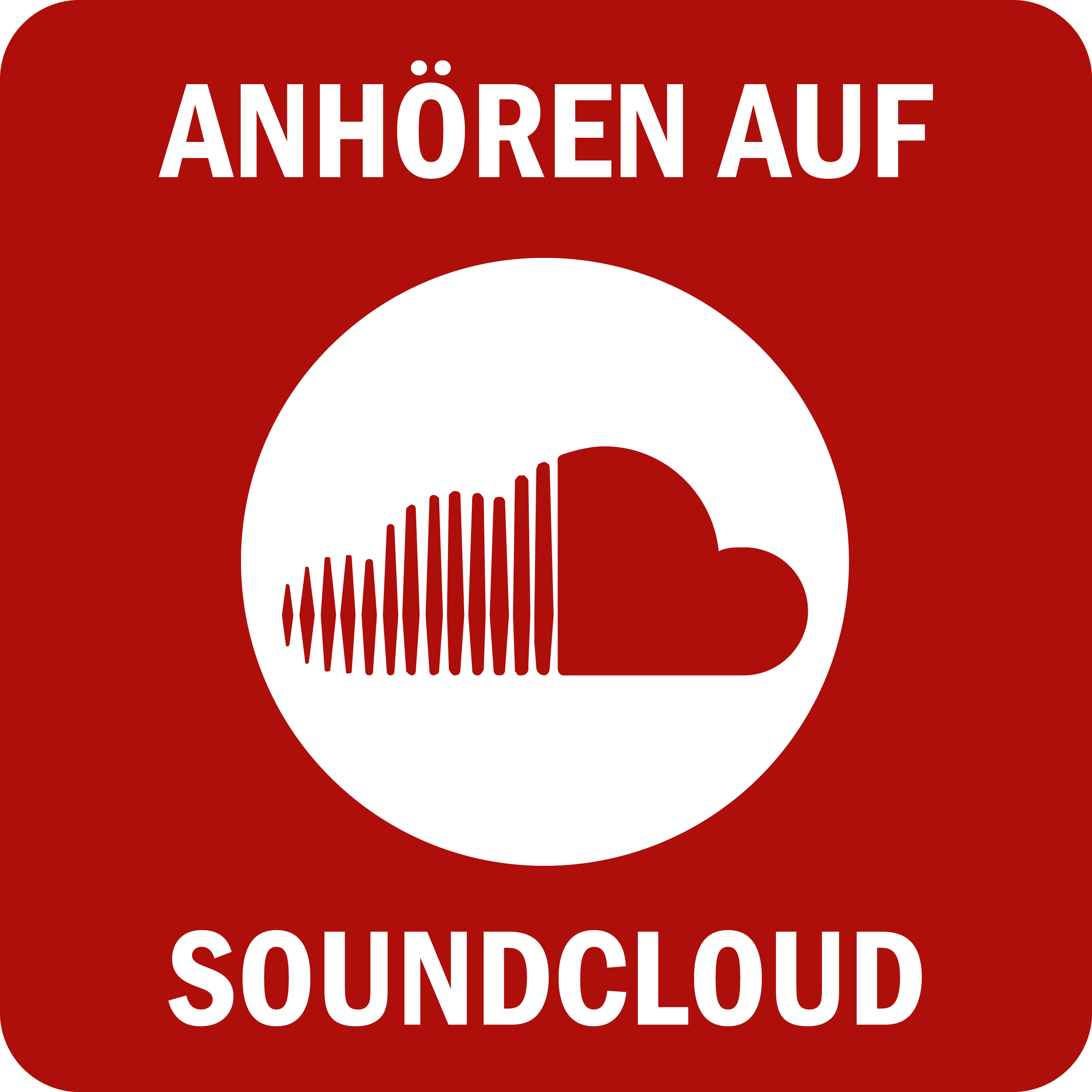War has been raging in Ukraine for a few days now, and the wallpaper is burning in Europe. But how!
I'm sitting on my planned blog article and writing about lightness. Really? So next topic from the list: Aesthetics. That doesn't work out either.
What do you write about in your blog these days, what do I write about? Should I at all?
TOO LAZY TO READ ON? THEN LISTEN TO ME:
In the blogcast, I read this recent blog article to you. With emphasis, of course!
What do we do in our social media channels, we ask ourselves in the team. What do we share in and with our community? Well, all in all, we still have to do our work. Nevertheless, pretending that nothing is going on is not valid either. That much is certain.
It is also certain that my commentary on the world political situation and the related analysis would be at least as dispensable as the contributions of many others already are. Even those of wiser beings than I am. For everyone can see that the Russian army invaded Ukraine on Vladimir Putin's orders, and everyone finds it appalling, reprehensible, evil and unjustifiable. Everyone minus the regimes in China, India, Iran, Syria, Venezuela, Myanmar and Donald Trump, who tell a different story about it, the truth of which they are deeply convinced. Just as they are convinced that Russia's rulers are doing the right thing, justified by all means.
So who is actually good, who is evil? What is true?
From our Western European perspective, there is no doubt about it, and I am deeply convinced that there is no perspective at all from which one can find war good. This perspective must not exist. Those who still haven't understood this will never understand it, I fear. Helping, supporting, saving lives, bringing them to safety - that is the imperative of every hour and of this hour.
And: ask questions. As always, ask questions, especially in the thicket of answers.
What is tomorrow?
What is blowing up in our faces these days with ominous certainty is the fact that the story of "good versus evil, and the good must win in the end, because only that is a happy ending", as the plumb line by which we have sounded out our actions since time immemorial, is inevitably plunging us into ruin. And this despite the fact that it has been guiding, directing, driving us humans ever since we have been telling ourselves stories, ever since its core has been the yeast that makes all the other stories of our species rise.
The story "Good against Evil" has everything that good, i.e. moving, stories need: Heroes, values, goals, conflicts, dangers, tension - and opponents. The more overpowering, the more formidable the opponents, the more legendary the heroic deeds in the defensive battle to protect values, under the banner of good. The wider the gorge, the deeper the abyss, the more courageous the leap and the louder the cry of jubilation after a successful landing on the saving edge.
And that is precisely the problem.
That is why this story is no longer any good, however effective - or however effective - it may have been over millennia, however many positive developmental thrusts it made possible. The story of "good versus evil, and good must win" is wrong. It will wipe us out as humanity. It may even happen before the climate catastrophe, before artificial intelligence gets completely out of hand and Johann Wolfgang von Goethe's analogous words come true one way or another:
"Lord, the need is great!
The spirits I called,
I cannot get rid of them.
"Welcome to the Anthropocene!
What are values worth?
When we tell ourselves and each other the story of good versus evil, terms like "having values", or "showing poise", or "fighting for one's ideals" quickly come up, with which we admiringly intoxicate ourselves in inward standing ovations.
"It's about our values!" Hardly a day passes without me coming across this sentence, whereby as a rule even values are confused with virtues - and then also with elastic steps on the suction staircase to success - and thus have little more meaning than opinions. If anything, then value-driven goals, not goal-driven values.
Core values, brand values, values of our society, values that must therefore be defended, to which we are unwaveringly committed - values, values, values. We quite rightly perceive values as something positive, which is why we hold our values high. (Only not the liver values, if possible).
Values are valuable. That is true. But it is still completely wrong. Because values are one thing above all: value-neutral.
Dear people, I know that a man who tells the truth needs a fast horse, and I don't even have enough air in my front bicycle tyre at the moment. Nevertheless, "having values", "showing attitude" and "fighting for one's ideals", that's what Vladimir Putin is currently showing us, that's what his army is doing. Nothing else. That's what Donald Trump did, under the battle cry "Make America great again!" the Capitol in Washington was stormed, that's what Hitler did with his pack of criminals, that's what the Allies did when they invaded Normandy, that's what motivated the Gulf Wars and everything that happened in the former Yugoslavia. This is true for Christians and their persecutors alike, it is true for crusaders and the Flying Doctors. They had and have a story that is perfect for them: a clear profile of values to which they are committed, a vision, a mission, an enemy from outside ... Abominable or gratifying? In any case, true for the heroes in their own story.
The good guys against the ruling power of the elite: "We are the many, the morally superior, dominated by a powerful elite minority" - that's the story mechanic of the Nazis, that's just as much the story mechanic of the Christians of 2,000 years ago, that drives, guides and directs Fridays for Future. With this story, you can demand "America First!" like Donald Trump, or introduce the Macintosh to the market like Apple did in 1984: a small group of righteous people fighting for liberation from the bondage of the all-dominating Big Brother IBM.
Good or evil? One man who knew all about war, hardship and misery was Marcus Aurelius. And he also knew about the high and rare art of introspection, in which he recognised: "Everything we hear is an opinion, not a fact. Everything we see is a perspective, not the truth."
Stories do not know neutral good and evil, but only perspective. This is what has always made stories so effective for creating identity, as a leadership tool, for motivation and enthusiasm. A common story unites and strengthens. In every direction. Many nations were founded on this story, many were destroyed with it.
"Our seemingly coherent story," says Yuval Noah Harari in his book Homo Deus, tells us "... who I am, where I come from and where I am going. This story tells me what to love, who to hate and what to do with myself. This story may even entail that I lay down my life if the plot requires it". As a mechanism, a narrative functions like a hammer: whoever wields it determines whether it acts as a tool or a weapon. Tanks and bombs are used to attack or liberate.
Are you evil?
No human being gets up in the morning and decides to be a bad person. Not even the worst criminals. And this despite a heart full of hatred, envy, love, jealousy, greed, envy, betrayal ... No parricide, no big-time swindler, no dictatorial terror ruler - not even Hitler had the thought that he was in the wrong, Vladimir Putin certainly not. They are all firmly convinced that they are pursuing a noble mission, fulfilling their duty, doing what has to be done. Even if it requires sacrifices.
Look at the next best thriller. At some point in Act 3, the time has come: the evil one reveals himself and his motives. Never as the bad guy, always as the good guy in his own story, as the avenger, the driven, the forced, the victim of circumstances.
Life is a single quandary in endless, merciless continuous operation, and we have to make one decision after another, in a dilemma, stuck "between a rock and a hard place". To this end, I have memorised a sentence by Roy E. Disney: "It's not hard to make decisions once you know what your values are." This thought is good, it is beautiful, it serves as a handrail on our inner spiral staircase. But as soon as the dogma flashes, the alarm bells start ringing. Attention: a wrong way into the abyss!
"Good against evil, and good must win" - the good in this story are always us, the evil are the others. The Other is everything that stands in our way on the way to winning, consequently has to be fought, dominated, conquered and defeated. Overcome and dominated, by us, the good. What we need for this may be used, exploited and plastered, ends justify the means. Everything serves as a resource for our profit, because we - the good guys - win.
The old story of "good against evil, and good must win" has a systemic flaw, however, that is so very serious: In our history, the good guys are us, but in the history of the others, we are not us, but the others, i.e. the bad guys, and thus the oldest narrative of humanity means in fact: everyone against everyone else. The old story of "good versus evil and good must win" has had its day. The book of Manichaeism as an operating manual for our living together in polarising opposition must be closed. Here, now and everywhere forever.
The story of good versus evil knows only one perspective: one's own. That is why it is correct in individual cases, but as a driving narrative for a society, for nations, for humanity as a whole, it is destructive and wrong. It must lead to ruin because it always needs an opponent. And when that one is defeated, we need the next one, because an opponent is frightening and, as Hans Fallada knew: "That's how people are: A common fear brings them together more easily than a common love."
What now, little man?, I ask myself and you and us.
Welcome to the Humanocene.
Quite simply, we need to understand why we humans are in the world. What it is that we and only we can do: create, heal, shape - for others. Not only can we do this, we must do this so that we remain healthy in soul and body.
We have to talk to each other. We must listen to each other. Absolutely and above all also to the others, our yes: opponents, no matter how evil they may be, reprehensible, brutal, disrespectful, oligarchic. We don't have to like them, we don't have to share their values, we can even reject them, but we have to understand them, sorry, that's the way it is. Sooner rather than later. What else? Should the Klitschko brothers ambush Putin behind the Kremlin and beat him up? Should it go on forever in the Middle East and in Syria and wherever else people are attacking each other? How long will this go on? Until everyone is dead?
How long will it be before refugees from Ukraine are pitted against refugees from 2015, Corona aid against rearmament spending, and all of this against investment in - sorry for the buzzword - a sustainable economy? Actually, this is already happening.
We have to listen to each other and understand each other. One does not have to share the positions of the so-called others, one may even find them wrong, but one must understand them. Only then will it be possible to live together without wars. Only then will we actually be able to eliminate sky-scraping catastrophes such as hunger in the world and keep the climate catastrophe as small as possible.
These are the enemies of humanity: hunger, poverty, injustice, hatred, war. Against these we should unite in common fear.
Missing persons report: Leaders urgently wanted!
For this - for my sake - struggle, we urgently and structurally need people in leadership positions who are suitable as role models, who act as moral authorities. In short: the opposite of the self-inventive ego acrobats who are currently in office almost everywhere. Perhaps the upheavals since 2020 can sharpen our minds to such an extent that a critical mass will have earned this designation in the literal sense of the word, that all the leaders will then be unmasked, the half-witted people who have been mistaken for politicians, the hosebaggers, the mouth-breathers, the professional truants, the hat-slingers, the egotists, the karaoke conductors and the furrowers; that the critical mass will then finally deprive them of office and dignity, dignity anyway, after they have long since deprived us of our dignity. That out of this critical mass - so the longing makes me hope - leaders will emerge who grow with their tasks, outgrow themselves in their tasks, jump over their shadows and land where successful politics means more than winning an election and this one formed government, because just without another election. What else could have been done, pray tell?
What one sees of Volodymyr Oleksandrovych Selensky resembles a candle of hope in the window to the dark world.
Maybe then these new leaders will cut off the old braids and finally, finally please be able to get out of their skin, take it off, the old skin that is already too tight, taut everywhere, not only around the hips, and itches, no matter how hard you cream it, hear its call, accept it, grow beyond themselves and thus into themselves.
Perhaps it will be those, of all people, who live up to their own standards and do everything, no matter what the cost, to ensure that independent people in a strong community come into their boundless development, because as soon as they can walk and talk, they also get to know the wondrous, healing magic power of the question mark. Independent people precisely because they know and understand that one asks, what one asks, how one asks and above all: why one asks.
Perhaps then we will have a generation of born leaders in our midst, people who lead with a steady hand, a cool head and a hot heart, at least once leading their own lives and therefore not being seducible.
Maybe once, then once, very quickly once, at least once, it won't be the failed ones who give in and let the stupid ones take over, but the burning desire will explode into a fireworks display of possible reality, in which corporate leaders don't waste every opportunity in the twinkling of an eye by gold-plating it, don't suddenly take over, grab whatever there is left to grab, even in the pockets of the stumbling ones, because nothing rolls so beautifully like the ruble in one's own bank account.
Perhaps we will then have enough of those at the helm who read a noble task between the lines of their job description, make themselves available to this task and fulfil it because they see fulfilment in it and not first in the filled money bin. Such calibres would be something for which every catharsis could have been worthwhile!
In education, in business, in politics, above all in so-called civil society, we need such leaders into a new era, with a new story that tells of connectedness. We need people who can manage antagonistic cooperation, who don't let themselves be pulled to one side, because that's easy and can be explained quickly and effectively: good against evil, and we are the good guys. But the world is not simple, life is complex. If we don't understand that, then we have to believe everything, and then it gets complicated.
So shouldn't we expect more of ourselves and less of each other? Make it less easy for ourselves, but not difficult for each other?
Shouldn't we ask ourselves more often the question that Barack Obama kept asking his team until the end: "What, if we are wrong?"
Time to go.
One voice that I - and I think: all of us - miss is that of Roger Willemsen, whose time on earth was not enough for his last book. It was to be called "Who we were" and look at our present from the future. He left us something from his last public appearance, where he summarised thoughts for his unwritten book in a speech about the future. "We were those who knew but did not understand, full of information but without realisation, brimming with knowledge but meagre in experience. So we went, unstopped by ourselves," Roger Willemsen said there. In the meantime, Willemsen's thoughtful, slender, powerful and broad-shouldered booklet has been followed up by a film documentary and an accompanying book, all of which are impulses to think about ourselves, to look at ourselves. Incentives for courageous action and rethinking, first and foremost. It is high time to set out.
I know that our place in the comfort zone is, if not secure, at least familiar. The comfort zone - our little kingdom that we rule, we, the good guys. Here we can make ourselves comfortable and easy. It's where we let everything go, where we let ourselves go and tell ourselves that we are realising ourselves and helping our values to break through. Really?
Our values are the vocabulary of our inner story. We use them to describe what is important to us, what matters to us, what we stand for. As soon as we know who we are, everything else suddenly becomes easy. Then we drop anchor in our inner harbour, the only safe one, in that harbour where our lighthouse stands. Then we have nothing more to lose, then we have nothing more to gain, but we would suddenly have a lot to share.
The always highly revered Viktor E. Frankl once told us: "Between stimulus and reaction there is a space. In that space we have the freedom and the power to choose our response. In our reaction lies our growth and freedom." This space is easy to find. It is beyond good and evil and beyond the comfort zone.
Let us enter this space. There we can meet each other, listen to each other, recognise what is important to us - to you, to me, to her, to him - share our stories, understand each other. And do something with each other, start something with each other, maybe even for each other, in all contrasts. The key to this space is to finally stop telling ourselves and each other the old story of "good vs. evil" and "us vs. them" that requires us to always take sides and be against the other so we can be for the one. Is that so?
If I adore opera, must I despise jazz?
If I love sunflowers, must I hate tulips?
If pizza delights me, must pasta disgust me?
We often hear that the world is not only black or white, but that there are also many shades of grey in between. I think that is far too dark a thought, because between black and white are all the colours of the spectrum in all their diversity, in all their harmony, in all their contrasts, in the fullness of the complementary. These are the colours with which we urgently need to paint our new history, the new history of humanity, if we want it to happen.
This new story tells of the harmony in connection of opposites in a better future, where we inspire each other instead of fighting. In a future where we want to live and want our children and grandchildren to live. A future of enabling instead of today's present of hindering. A future of listening, of tuning in to each other, of cooperation, of mutual support, of understanding, of heart building. In this future, we no longer have to try in vain to fill the vacuum of meaning in ourselves, in our companies and in our society through consumption and material growth, i.e. through the exploitation of resources. In this future, we go in and out of each other, but never out of each other. That would be a happy ending and thus a real beginning.
So get out of your comfort zone and into the conversation room! Are you in? One definitely is, my grandmother, old Story Dudette. She's sitting there in the room called freedom, beyond good & evil, and if you pay close attention you can hear what she's muttering into her rather shaggy beard: "New Story. New Glory."




